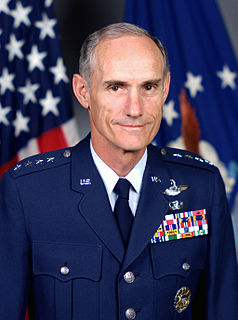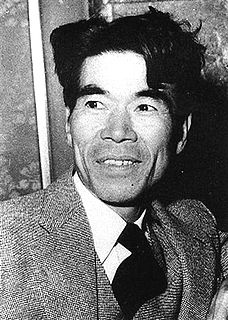A Quote by Franklin D. Roosevelt
Resort to force in the Great War (I) failed to bring tranquillity. Victory and defeat alike were sterile. That lesson the world should have learned.
Related Quotes
In every adversity there lies the seed of an equivalent advantage. In every defeat is a lesson showing you how to win the victory next time. [But you must know enough to realise this, lest you focus more on the defeat than finding the lesson you paid for with the defeat. With every defeat and mistake, you have the logical right to get excited about the future when you will understand and be able to apply the lessons and thereby turn defeat and temporary failure into victory and permanent success.]
We have known the bitterness of defeat and the exultation of triumph, and from both we have learned there can be no turning back. We must go forward to preserve in peace what we won in war. A new era is upon us. Even the lesson of victory itself brings with it profound concern, both for our future security and the survival of civilization. The destructiveness of the war potential, through progressive advances in scientific discovery, has in fact now reached a point which revises the traditional concepts of war.
Liebig taught the world two great lessons. The first was that in order to teach chemistry it was necessary that students should be taken into a laboratory. The second lesson was that he who is to apply scientific thought and method to industrial problems must have a thorough knowledge of the sciences. The world learned the first lesson more readily than it learned the second.
When you look at the global situation, if America learned to be one of the many countries in the world and to find its way to cooperate with people and bring a global peace that could bring great prosperity to this globe, there is still a chance of that, and that's a big lesson from history. We are not paying attention to that.
The high level of the technologies used during the Gulf War makes this conflict quite unique, but the very process of de-realization of the war started in 1945. War occured in Kuwait, but it also occured on the screens of the entire world. The site of defeat or victory was not the ground, but the screen.
See, see how the sun has moved onward while we talked. Nothing can stop it in its course. Prayers cannot halt the revolving of nature. It is the same with human life. Victory and defeat are one in the vast stream of life. Victory is the beginning of defeat, and who can rest safely in victory? Impermanence is the nature of all things of this world. Even you will find your ill fortunes too will change. It is easy to understand the impatience of the old, whose days are numbered, but why should you young ones fret when the future is yours?
We should always settle disputes through dialogue and cooperation, and should not resort to the use or threat of force on the slightest provocation. We should get rid of Cold War thinking and broaden the converging points of our common interests, notwithstanding the differences in social systems and ideologies.

































